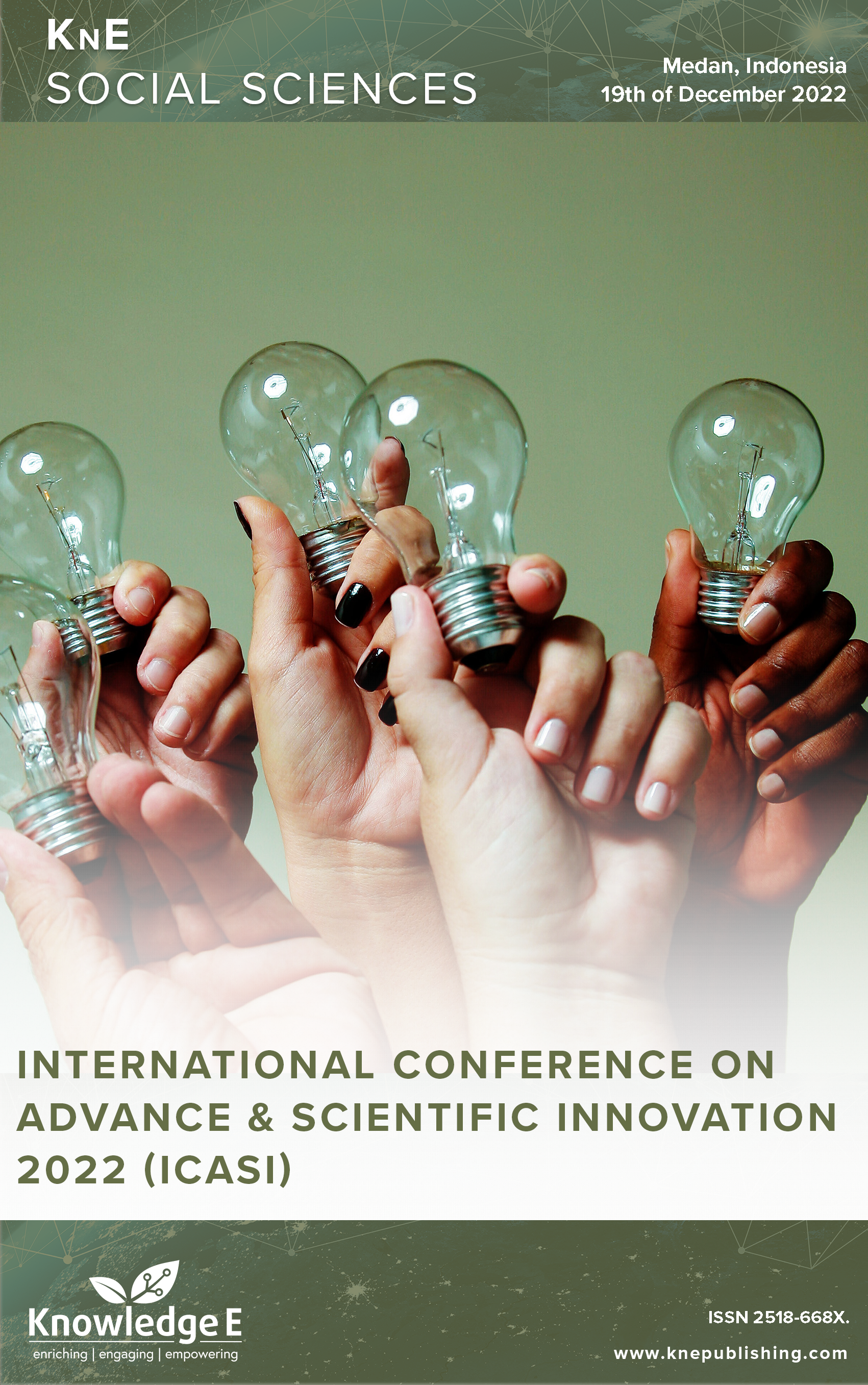Regulations on the Registration System of Marketing Affiliation Program on Electronic Contracts for Minors without Parental Consent
DOI:
https://doi.org/10.18502/kss.v8i9.13352Abstract
Many of the participants of marketing affiliation programs are children, and their parents have not approved of their participation in the marketing affiliation program. This allegedly occurred because the information system of the application organizer in the affiliation program did not accommodate the alignment of legal requirements, which is one of the conditions for the validity of a contract. The purpose of this study is to normatively elaborate on the general practice of organizing marketing affiliation programs in Indonesia, particularly in identifying the legal loopholes for the program participants who happen to be underage and without parental permission. This study concluded that the registration system for marketing affiliation programs has loopholes that do not prevent participation in marketing affiliation programs by underage participants who do not have parental permission. Given that the loophole indirectly ignores the conditions of capacity, this will almost certainly affect the existence of electronic contracts agreed upon by the parties. Information system operators in marketing affiliation programs must create a more accommodating system to meet these legal requirements’ full scope. The system can be developed, particularly during the registration phase, so that the system has a filtering mechanism for immature registrants. As a result, changes to regulations governing electronic transaction practices are required to ensure that electronic transaction operators develop an electronic transaction system that meets the requirements for adult age limits and parental consent.
Keywords: Affiliate Marketing, Electronic Contract, Minors, Parental Consent
References
[2] Wardhana A, Pradana M. Viral Marketing Determinants of Top Online Shop Brands in Indonesia 1. 2016;32(1):25–30.
[3] Priowirjanto ES. “Pengaturan Transaksi Elektronik dan Pelaksanaannya di Indonesia Dikaitkan dengan Perlindungan E-Konsumen Rela on to the Protec on of E-Consumer ’ s Rights A. Pendahuluan Berdasarkan ketentuan perundang-undangan yang berlaku di Indonesia, 1 transaksi ele,” Padjadjaran J. Ilmu Huk., vol. 1, no. 35, pp. 286–300, 2012, [Online]. Available: http://jurnal.unpad.ac.id/pjih/article/view/7080
[4] Putri WS, Budiana N. Keabsahan Kontrak Elektronik Dalam Transaksi E-Commerce Ditinjau dari Hukum Perikatan. J. Anal. Huk. 2018;1(2).
[5] Olii IW. Keabsahan Kontrak Elektronik Shopee Affiliates Dibawah Umur Tanpa Izin Orangtua. Universitas Islam Indonesia; 2022.
[6] Rahman F. “Praktik Affiliate Marketing pada Platform E-commerce dalam Tinjauan Hukum Ekonomi Syariah,” Istidlal J. Ekon. dan Huk. Islam. 2022;6(1):24–37.
[7] P. A. & A. M. Bowie D. Technology-Driven Online Marketing Performance Measurement: Lessons from Affiliate Marketing. Int J Online Mark. 2014;4(4).
[8] Jefferly H. 1 Juta Rupiah Pertama Anda dari Affiliate Marketing. Jakarta: Elex Media Komputindo; 2014.
[9] “No Title.” https://markey.id/blog/bisnis/business-chance/affiliate-marketingindonesia
[10] Rafiqih A. Sistem Affiliate Dalam Marketplace Shopee Menurut Hukum Islam dan Hukum Positif di Indonesia. Universitas Islam Negeri Syarif Hidayatullah; 2022.
[11] Guo L, Liu Q, Shi K, Gao Y, Luo J, Chen J. A blockchain-driven electronic contract management system for commodity procurement in electronic power industry. IEEE Access. 2021;9:9473–80.
[12] Santoso A, Pratiwi D. Tanggung Jawab Penyelenggara Sistem Elektronik Perbankan Dalam Kegiatan Transaksi Elektronik Pasca Undang-Undang Nomor 11 Tahun 2008 Tentang Informasi Dan Transaksi Elektronik. J. Legis. Indones. 2008;5(4):74–88.
[13] 13. Wan D, Deng Z, Lee RH. Electronic Contract Signing Without Using Trusted Third Party.
[14] Qiu H. M., Xu, S., Yung, M., Zhang. Lect. Notes Comput. Sci. Volume 9408. Network and System Security; 2015.
[15] Biondi G. Analisis Yuridis Keabsahan Kesepakatan Melalui Surat Elektronik (E-Mail) Berdasarkan Hukum Indonesia. Tesis; 2016. pp. 1–163.
[16] Lorenzo S. Certain Comparative Noteson Electronic Contract Formation. Law. J. High. Sch. Econ. 2016;(1):216–131.
[17] Ricardo S. Teknik Perancangan Kontrak Bisnis. Jakarta: Gramedia; 2018.
[18] Herianto Sinaga D, Wiryawan IW. Keabsahan Kontrak Elektronik (E-Contract) Dalam Perjanjian Bisnis. Kertha Semaya J. Ilmu Huk. 2020;8(9):1385.

